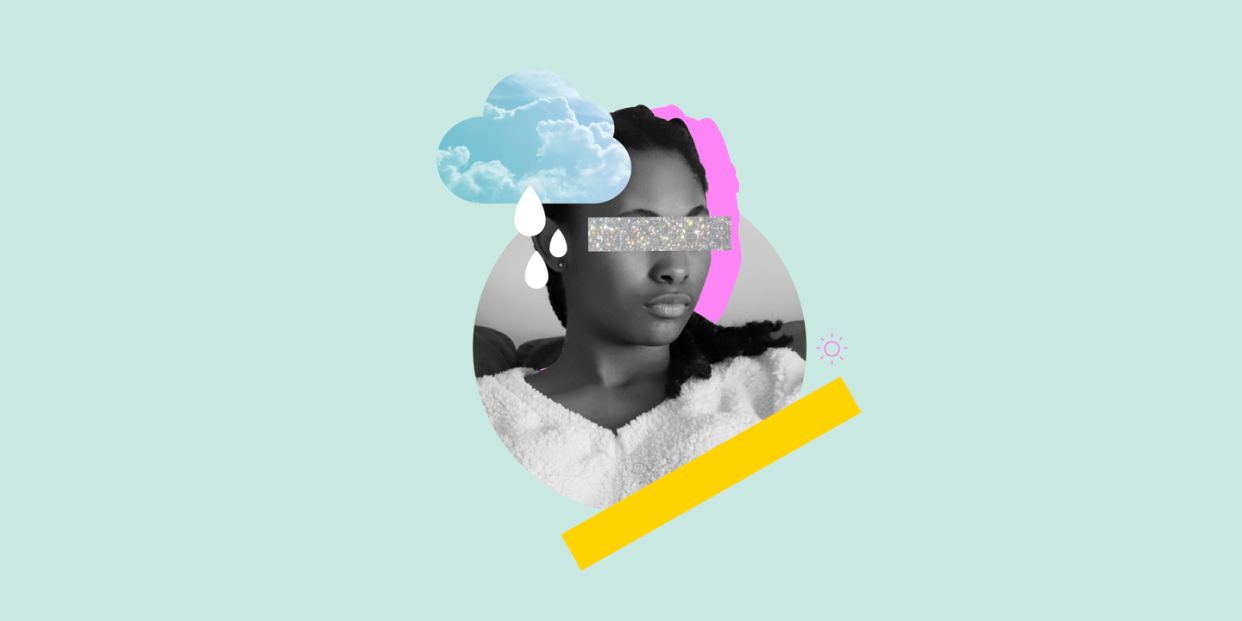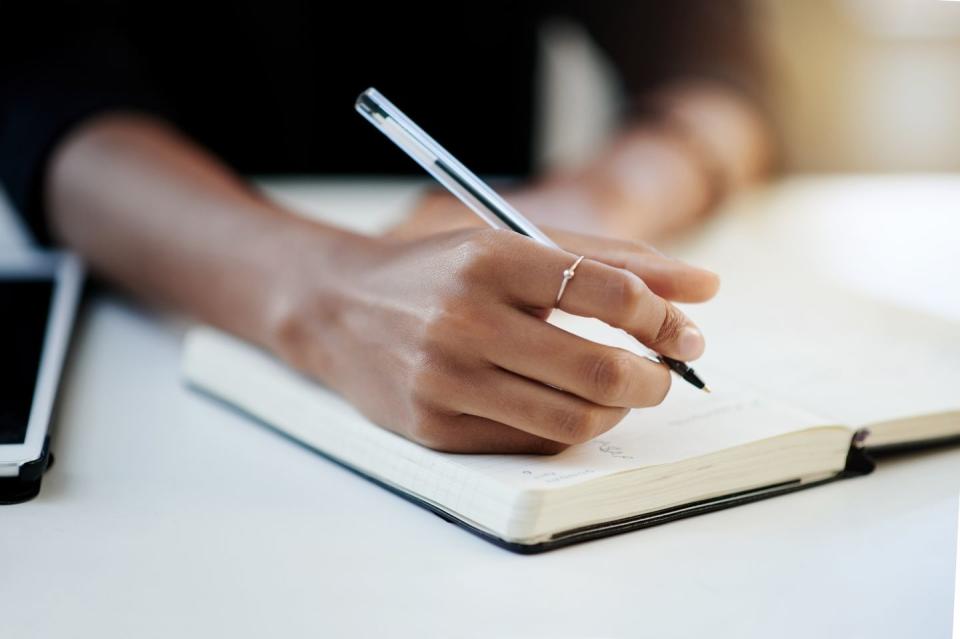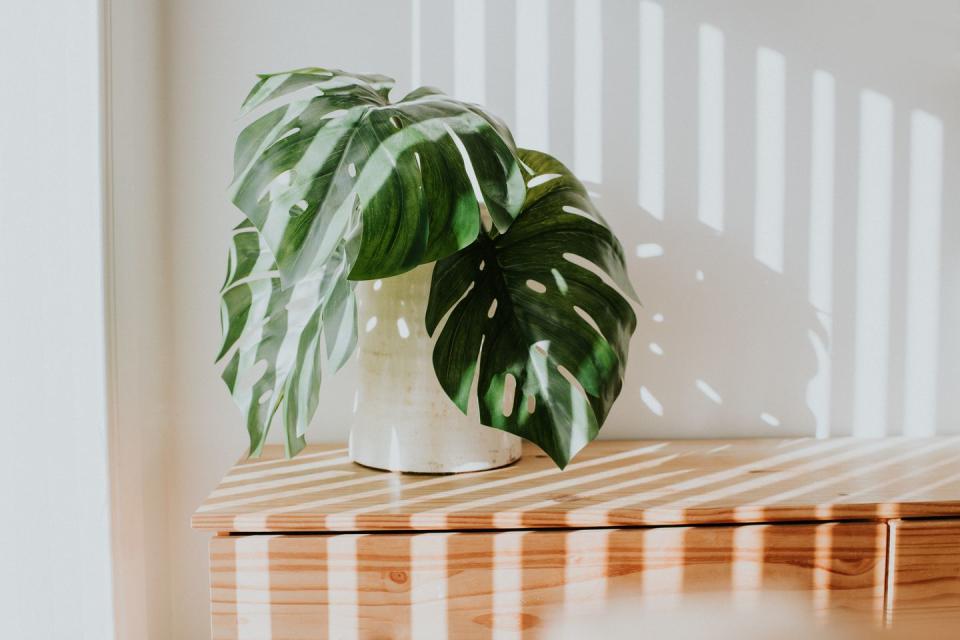5 pieces of advice for depression that you'll actually find useful

Having just written a book about all the mysteries that depression brings into you and your loved ones lives, I’ve heard a lot of "tips and advice" around improving shoddy mental health. I’ve been living with depression for around six years, and have tried many, many things to ignore it, fix it, make it go away and try to make myself feel better.
The amount of advice out there that’s actually complete twaddle is why I wrote the book in the first place. It’s essentially a big clap back to people who say things like, "Just stop thinking about it!" or, "Try a fast for five days, it will reset your body mentally and physically" - two useless suggestions that were both pitched at me in actual, real life.
Over the past six years, I've come to learn that there are some things that actually do work for me. Depression is totally different in the way it consumes each individual person unlucky enough to be bestowed with the demons. The suggestions below may not work for everyone, but these are the most useful pieces of mental health advice I’ve gleaned from writing, reading, speaking to peers and professionals, and generally trying to wade through life as a bit of a sad person:
1. Use the time when you feel less awful to plan for when you inevitably feel gloomy again
This is the most effective thing that helps me when I feel unshakeably awful, and although it sounds super obvious when it’s written down, it took me a few years to figure it out. If your depression comes and goes, it’s worth using the lighter moments to prepare for when the doom will hit you again. This might be in a few hours, days, or months, but it seems that those of us who’ve had depressive episodes are likely to get them again.
Think about what happens to you when you’re depressed and having a particularly rough time of it, and note down things that are likely to make you tip back into the dark times (actually note down, it helps I promise). For me, I know I always feel exhausted and down after spending time with people and being "on" - this used to be IRL and now is on Zoom, but the feelings stay the same. So if I know I have a lot of meetings or virtual-social things happening, I’ll try not to schedule anything important in for afterwards as I know I definitely won’t be at my best.

When you’re feeling capable of it, it's wise to use a comparably lighter period to plan how you’re going to look after yourself. Whether this is looking into medication, counselling or CBT, or telling someone you live with that you’re feeling an episode coming on, prepare whatever it is that helps you through it.
2. Tell your housemates / family / whoever has to spend time with you that it’s not up to them to fix you or look after you
Depression doesn’t just affect the person suffering with it. It has a way of creeping into the people around them, too, and making them feel like they’re at fault or the cause of depression. Before I told my then-boyfriend that I was depressed, he thought I was always really annoyed with him because I kept locking myself in the bedroom or bathroom and needing to lie down in the dark.
Once you tell someone that you’re struggling, it’s easy for that person to feel like they’re not loving you enough or being good enough, which is why you feel so shite. It’s important to explain that it’s an illness that cannot be loved out of someone and that they are NOT to blame; it’s something happening in your head that you’re going to try and manage.
3. Order a plant
There's a whole lot of science that proves nature and greenery helps our brains calm down and feel less awful. But there’s also a pandemic and a lockdown, so getting outside isn’t all that easy or safe right now. What a time to be alive (and sad). If you’re overwhelmed with doom, bringing the greenery to you is a smart idea.
Patch Plants have an 'almost unkillable' range which is great for those of us who can barely look after ourselves, let alone another living thing. Plants of course don’t offer the same Attenborough-esque world of the great (or at least average) outdoors, but having greenery in your vision has been proven to help. And, honestly, it makes me feel like I’m more 'together', so I'd see if it works for you, too.

4. Follow social media accounts that make you feel less alone and crap
Social media isn’t great for our mental health if we use it in the wrong way. Scrolling through everyone else's 'happy times' and staged cuteness isn’t going to make you feel any better when you’re in bed for the third day in the row, wearing the same pyjamas with greasy hair and crusty eyes.
If an account makes you feel crap, not good enough, or anything that isn’t uplifted, empathised with or 'seen', ditch it. Use the mute button and use it hard.
There are plenty of Instagram and TikTok accounts that both give advice and make jokes about depression that make me feel less alone in my misery. Gemma Correll has some great posts, and Emotional Club always makes me laugh. This doctor makes great TikToks, too.
5. If you’re really feeling awful, let yourself feel it
Half the battle of living with a mental illness is pretending that you don’t have it, and slapping on a smile and the jazz hands whenever you have to go to work or speak to another human. Ignoring how you really feel is necessary for some situations - if you’re a doctor, for example, you can’t really just dip out to take a quick cry in the dark in the middle of surgery.
BUT, this doesn’t mean you can’t feel them later, when they’re likely to still be hanging around and giving you grief. Taking time to actually feel your shit feelings and accept that you’re feeling this way has proved helpful for me. Even if it’s just blocking out two hours and going for a lie down and a weep, it’s what I need to do at the time.
Accepting and acknowledging that you’re depressed is pretty big. Feeling your feelings and then using lighter moments to work out how you’re going to try and manage your depression is also rather monumental, and a great start to feeling less awful all the time. In my book, Get A Grip, Love, I talk about everything that has and hasn’t worked for me and heaps of other people, as well as speak to counsellors, doctors and scientists about the chemistry of it all. If you or someone you know is struggling with depression, check it out. You can read the first chapter for free on Apple Books, if you like.
If you're struggling with your mental health and need some support, find more information at Mind. Alternatively, call the Samaritans helpline 24/7 for free, on 116 123.
The latest issue of Cosmopolitan UK is out now and you can SUBSCRIBE HERE.
Like this article? Sign up to our newsletter to get more articles like this delivered straight to your inbox.
You Might Also Like


